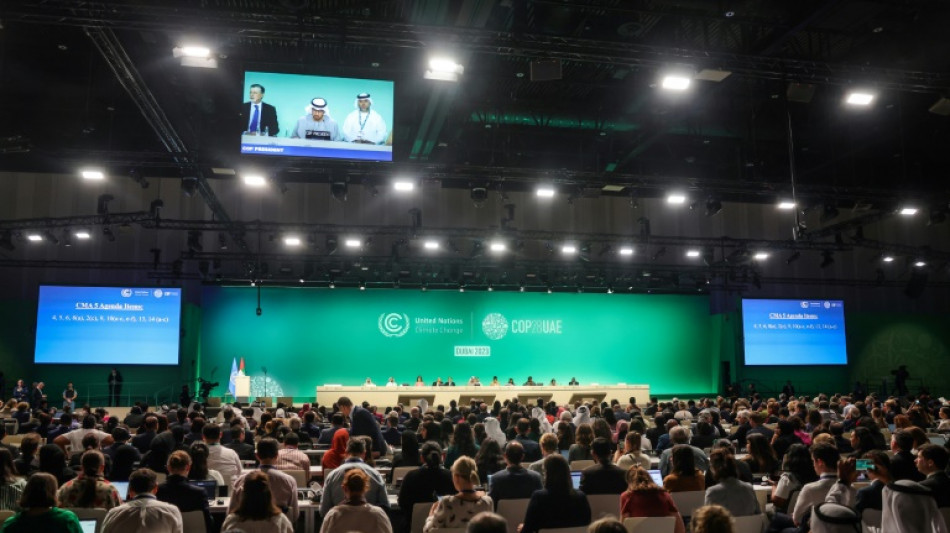
-
 Trump has options on Iran, but first must define goal
Trump has options on Iran, but first must define goal
-
Paris FC's Ikone stuns PSG to knock out former club from French Cup

-
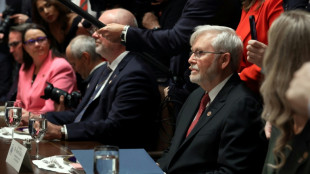 Australia's ambassador to US leaving post, marked by Trump rift
Australia's ambassador to US leaving post, marked by Trump rift
-
Slot angered by 'weird' Szoboszlai error in Liverpool FA Cup win

-
 Szoboszlai plays hero and villain in Liverpool's FA Cup win
Szoboszlai plays hero and villain in Liverpool's FA Cup win
-
Hawaii's Kilauea volcano puts on spectacular lava display
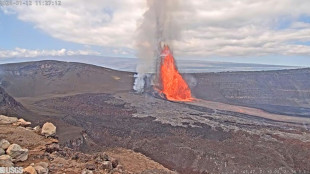
-
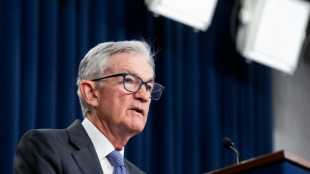 US stocks at records despite early losses on Fed independence angst
US stocks at records despite early losses on Fed independence angst
-
Koepka rejoins PGA Tour under new rules for LIV players

-
 Ex-France, Liverpool defender Sakho announces retirement
Ex-France, Liverpool defender Sakho announces retirement
-
Jerome Powell: The careful Fed chair standing firm against Trump
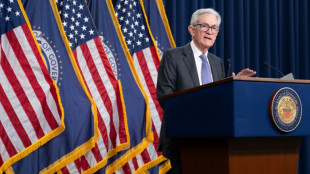
-
 France scrum-half Le Garrec likely to miss start of Six Nations
France scrum-half Le Garrec likely to miss start of Six Nations
-
AI helps fuel new era of medical self-testing

-
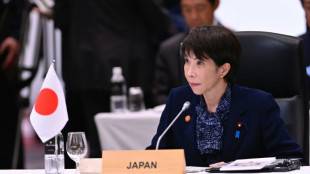 Leaders of Japan and South Korea meet as China flexes muscles
Leaders of Japan and South Korea meet as China flexes muscles
-
Trump sets meeting with Venezuelan opposition leader, Caracas under pressure

-
 Australia captain Alyssa Healy to retire from cricket
Australia captain Alyssa Healy to retire from cricket
-
US 'screwed' if Supreme Court rules against tariffs: Trump

-
 NATO, Greenland vow to boost Arctic security after Trump threats
NATO, Greenland vow to boost Arctic security after Trump threats
-
Israel to take part in first Eurovision semi-final on May 12

-
 How Alonso's dream Real Madrid return crumbled so quickly
How Alonso's dream Real Madrid return crumbled so quickly
-
Ex-Fed chiefs, lawmakers slam US probe into Jerome Powell

-
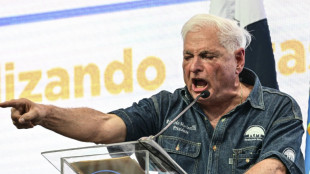 Former Panama leader on trial over mega Latin America corruption scandal
Former Panama leader on trial over mega Latin America corruption scandal
-
Trump keeping Iran air strikes on the table: White House

-
 Paramount sues in hostile bid to buy Warner Bros Discover
Paramount sues in hostile bid to buy Warner Bros Discover
-
Ugandan opposition leader Bobi Wine warns of protests if polls rigged
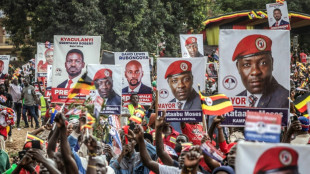
-
 Airbus delivers more planes in 2025
Airbus delivers more planes in 2025
-
Alonso leaves Real Madrid, Arbeloa appointed as coach

-
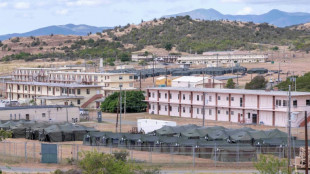 UK pays 'substantial' compensation to Guantanamo inmate: lawyer
UK pays 'substantial' compensation to Guantanamo inmate: lawyer
-
Iran protest toll mounts as government stages mass rallies
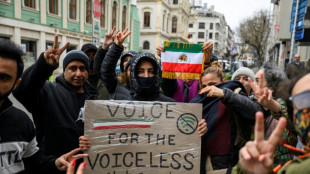
-
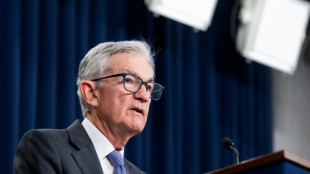 Gold hits record high, dollar slides as US targets Fed
Gold hits record high, dollar slides as US targets Fed
-
Cuba denies being in talks with Trump on potential deal
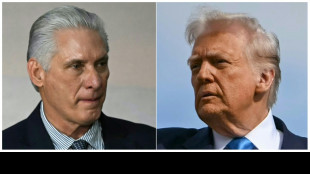
-
 Scientists reveal what drives homosexual behaviour in primates
Scientists reveal what drives homosexual behaviour in primates
-
Venezuela releases more political prisoners as pressure builds

-
 15,000 NY nurses stage largest-ever strike over conditions
15,000 NY nurses stage largest-ever strike over conditions
-
Rosenior plots long Chelsea stay as Arsenal loom

-
 Zuckerberg names banker, ex-Trump advisor as Meta president
Zuckerberg names banker, ex-Trump advisor as Meta president
-
Reza Pahlavi: Iran's ex-crown prince dreaming of homecoming

-
 Venezuela releases more political prisoners
Venezuela releases more political prisoners
-
Kenya's NY marathon champ Albert Korir gets drug suspension

-
 US prosecutors open probe of Fed chief, escalating Trump-Powell clash
US prosecutors open probe of Fed chief, escalating Trump-Powell clash
-
Russian captain in fiery North Sea crash faces UK trial

-
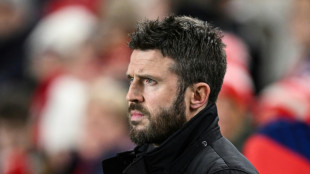 Carrick is frontrunner for interim Man Utd job: reports
Carrick is frontrunner for interim Man Utd job: reports
-
Iran government stages mass rallies as alarm grows over protest toll
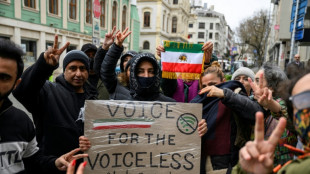
-
 Variawa leads South African charge over Dakar dunes
Variawa leads South African charge over Dakar dunes
-
Swiss inferno bar owner detained for three months

-
 Heathrow airport sees record high annual passenger numbers
Heathrow airport sees record high annual passenger numbers
-
Georgia jails ex-PM for five years amid ruling party oustings
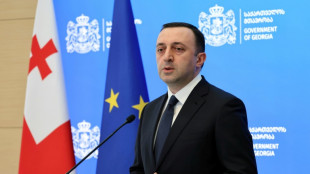
-
 Kyiv buries medic killed in Russian drone strike
Kyiv buries medic killed in Russian drone strike
-
Israel revokes French researcher's travel permit

-
 India and Germany seek to boost defence industry ties
India and Germany seek to boost defence industry ties
-
French coach and football pundit Rolland Courbis dies at 72


Nations to submit boosted climate plans: what's at stake?
Nations have begun setting carbon-cutting targets for the decade ahead, and how ambitious these pledges are could make or break global efforts to avoid dangerous levels of climate change.
Nearly 200 countries are supposed to publish updated climate plans by early February, but so far only three have done so.
On Wednesday, the UK became the latest, announcing during the COP29 climate summit in Azerbaijan that it would raise its target to cut greenhouse gas emissions.
All eyes will be on other big polluters like China, India and the United States, though future US climate action is unclear following Donald Trump's election.
- Why do they matter? -
The world has agreed to try and limit global warming to 1.5 degrees Celsius above pre-industrial levels, but is nowhere near on track.
Above this threshold, scientists say humanity risks disastrous consequences from volatile weather to major ecological "tipping points" at land and sea.
Last month, the United Nations warned that even if all existing plans are implemented in full, temperatures would rise 2.6C by the century's end, a catastrophic outcome.
The UN says the next round of climate plans must show a "quantum leap" in ambition to avert the worst.
The G20 -- which accounts for 77 percent of total greenhouse gas emissions -- is under particular pressure to step up.
- Early movers -
Just before COP29 opened in Azerbaijan, the United Arab Emirates announced a 47 percent reduction in emissions by 2035 compared with 2019 in its updated climate plan.
Observers said the roadmap failed to account for exported emissions -- including those from its sales of crude oil abroad.
Next year's UN climate host, Brazil, has partly unveiled its plan, increasing its emissions reduction target from a 59 percent cut by 2035, from 2005 levels, to a 67 percent reduction.
It is expected to unveil a more complete plan during COP29.
Plans from other major emitters, like the European Union and China, are not expected until next year.
And the current US government could soon outline Washington's new pledge, despite questions over Trump following through once in office.
David Waskow, of the World Resources Institute, said it would help guide American cities, states and businesses wishing to continue climate action under Trump.
"It also sends an important signal internationally, a set of benchmarks for what the US ought to do," he added.
- What do countries need to do? -
By signing the Paris accord, nearly 200 nations agreed to halt rising temperatures "well below 2C" and strive for the safer goal of 1.5C.
But it did not prescribe how to get there.
The deal left it up to countries to voluntarily chart their own plans and targets, known as Nationally Determined Contributions (NDCs).
These include emission reduction targets and measures to achieve them, such as rolling out renewable energy, electrifying transport, and ending deforestation.
There is no set template for countries to follow but richer countries -- historically the largest emitters -- have a responsibility to pledge the deepest emission cuts.
The plans must be reviewed every five years, with each update supposed to be more ambitious than the last.
This time around countries are expected to improve their 2030 targets and outline economy-wide action they will take to 2035.
- What's the aim? -
An agreement at last year's COP28 climate summit "encouraged" countries to come forward with plans aligned with halting warming to 1.5C.
To have a hope of meeting that goal, emissions must be slashed 42 percent by 2030 and 57 percent by 2035, the UN's Environment Programme said last month.
Currently, however, emissions are continuing to rise.
Keeping 1.5C on track would require a collective effort "only ever seen following a global conflict", it added.
Without pulling together "on a scale and pace never seen before... the 1.5C goal will soon be dead," said UNEP executive director Inger Andersen.
The big moment for assessing progress towards the 1.5C goal comes at a crunch COP30 climate summit in Brazil next year.
- What about fossil fuels? -
Scientists and the International Energy Agency have said that developing new fossil fuel projects is incompatible with halting warming to 1.5C.
But many fossil fuel producing countries argue that new oil and gas projects will be needed as the world transitions to net zero emissions.
Countries are under pressure to outline in their updated plans how they intend to reduce their reliance on fossil fuels, something all nations agreed at last year's COP.
G.AbuOdeh--SF-PST



